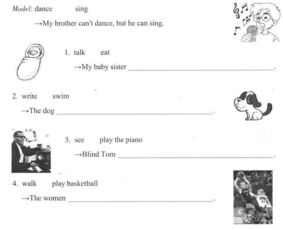Using AR Verbs in Spanish Adjectives: A Comprehensive Guide
Adjectives in Spanish play a crucial role in describing nouns and adding meaning to sentences. One of the most common ways to use adjectives in Spanish is by conjugating them with the auxiliary verb “ser” or “estar.” This guide will delve into the intricacies of using AR verbs in Spanish adjectives, providing you with a comprehensive understanding of this grammatical concept.
Understanding AR Verbs

AR verbs, also known as irregular verbs, are a group of verbs in Spanish that do not follow the standard conjugation patterns. These verbs have unique endings that change according to the subject pronoun. When using AR verbs in Spanish adjectives, it is essential to understand their conjugation rules.
| Subject Pronoun | AR Verb Ending |
|---|---|
| yo | ar |
| t煤 | as |
| 茅l/ella/usted | er |
| nosotros/nosotras | amos |
| vosotros/vosotras | 谩is |
| ellos/ellas/ustedes | en |
As you can see from the table above, the endings of AR verbs vary depending on the subject pronoun. For example, the verb “hablar” (to talk) conjugates to “hablo” (I talk), “hablas” (you talk), “habla” (he/she/it talks), “hablamos” (we talk), “habl谩is” (you all talk), and “hablan” (they talk/you all talk).
Conjugating Adjectives with AR Verbs

When using AR verbs in Spanish adjectives, you need to conjugate the adjective according to the subject pronoun. This means that the ending of the adjective will change to match the ending of the AR verb. Here are some examples to illustrate this concept:
1. Yo soy feliz. (I am happy.)
2. T煤 eres bonito. (You are handsome.)
3. 脡l/ella/usted es inteligente. (He/she/it is intelligent.)
4. Nosotros/nosotras somos valientes. (We are brave.)
5. Vosotros/vosotras sois sabios. (You all are wise.)
6. Ellos/ellas/ustedes son fuertes. (They are strong.)
As you can observe, the adjectives “feliz,” “bonito,” “inteligente,” “valientes,” “sabios,” and “fuertes” have been conjugated to match the subject pronouns in each sentence.
Using AR Verbs in Negative Sentences

When forming negative sentences in Spanish, you need to use the verb “no” followed by the conjugated AR verb. Here’s how you can use AR verbs in negative sentences with adjectives:
1. Yo no soy feliz. (I am not happy.)
2. T煤 no eres bonito. (You are not handsome.)
3. 脡l/ella/usted no es inteligente. (He/she/it is not intelligent.)
4. Nosotros/nosotras no somos valientes. (We are not brave.)
5. Vosotros/vosotras no sois sabios. (You all are not wise.)
6. Ellos/ellas/ustedes no son fuertes. (They are not strong.)
In these examples, the verb “no” is used to negate the









